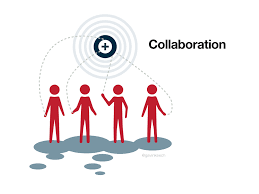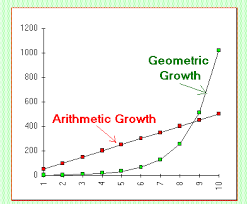
Social synergy is the difference between what individuals produce by acting together compared to what they produce as individuals working alone. It can be positive or negative, where trade is a positive synergy and war a negative one. People tend to join communities with positive synergy and leave those with negative synergy, whether people leaving websites plagued by conflicts or refugees fleeing war torn nations. The performance of a group at the social level depends on its ability to generate synergy. Synergy is a property of the social interactions, not the social individuals. In the prisoner’s dilemma, the interaction is the loyal friendship total (10) less the defect total (2) gives a synergy of +8 years. In the tragedy of the commons, the village cooperative total (2,500) less the competitive total (1,600) gives a synergy of +900 tons of beef.
Human progress has stabilized synergy for larger groups. Civilization has taken humanity from tribes to cities, from cities to states, and from states to mega-states like Europe, India, China and America (Diamond, 1998). Each stage of this social evolution required more complex social and physical systems to succeed. That larger groups allow larger synergies is why people are better off today than ever before in history. Technology now makes genuinely global exchanges possible, and the synergies are enormous. We think in terms of nations but already the world’s top 100 economies include 69 corporations. Multi-nationals grew because tapping the world gave more than tapping a nation, but there is now a backlash as faceless corporations do not represent “us” as nations do. Multi-nationals that came to be seen as “bad” could not take up the Internet offer of global synergy.
Science illustrates the benefit of synergy. Suppose 100 researchers each make different knowledge advances of equal value. Following a zero-sum model as private companies do, they keep their results secret, as why let competitors benefit from my work? In contrast, academics following a non-zero sum model share their research. In the first case, the total knowledge increase is 100 units of human understanding, but in the second case it is 1000 units, as each researcher gets 99 new ideas from others as well as their own. This is a hundred-fold synergy gain vs. keeping research secret. If past scientists had kept their research secret, benefits like electricity may not have occurred. Yet the decoding of the human genome sequence was nearly patented for commercial gain rather than made available to all. What is the justification for people patenting what Nature created? The the problem with academic journals is that they have become knowledge fortresses because the academic system itself is essentially a feudal knowledge system that doesn’t effectively use social synergy.

Synergy arises when people work to create others outcomes. It is not just people adding their efforts, say to lift a heavy log together. It is when specialists add value for others; e.g. if a fisherman trades excess fish for a farmer’s excess grain, each gives an extra they don’t need for a deficit they do. Conflict is the reverse, where each creates negative results for the other. Large communities produce more because productivity based on individual competence increases linearly with group size. In contrast, synergy based on citizen interactions increase geometrically with group size, so large communities that synergize produce much more. When millions synergize, as today, the output gains are enormous. Synergy is why ordinary people today have better food, healthcare and entertainment than the richest aristocrats of the middle ages, and today’s rich have more money than they can spend in a lifetime.
Synergy is especially applicable online, as one can give information to others without losing it oneself. So when the Internet allows millions to share information, the effect is especially powerful, as systems like Google illustrate. The prosperity of modern society is based on synergy.